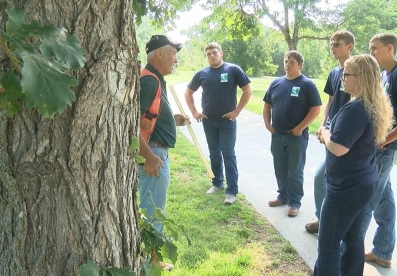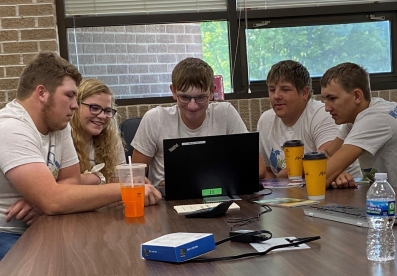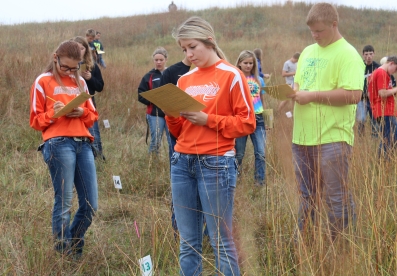Sharing information with landowners and producers on topics ranging from water to erosion control to trees is an important aspect of the work of NRDs.
The Lower Loup NRD has information and education programs in place for its Groundwater Management Areas and its Wellhead Protection Program. These programs are designed to educate landowners and keep them informed of the latest program developments.
The NRD works with school districts to provide educational programs for students. NRD staff is available to make classroom presentations and to provide educational materials for students from elementary to high school age.
The Food, Land and People (FLP) curriculum is an option for teachers wishing to bring agricultural and environmental elements to their lesson planning. FLP provides resources and promote approaches to learning which help educators and students in grades K-12 understand the interrelationships between agriculture, the environment and people.
For more information on the Lower Loup Natural Resources District educational programs, contact NRD Information/Education Coordinator Alan Bartels.



